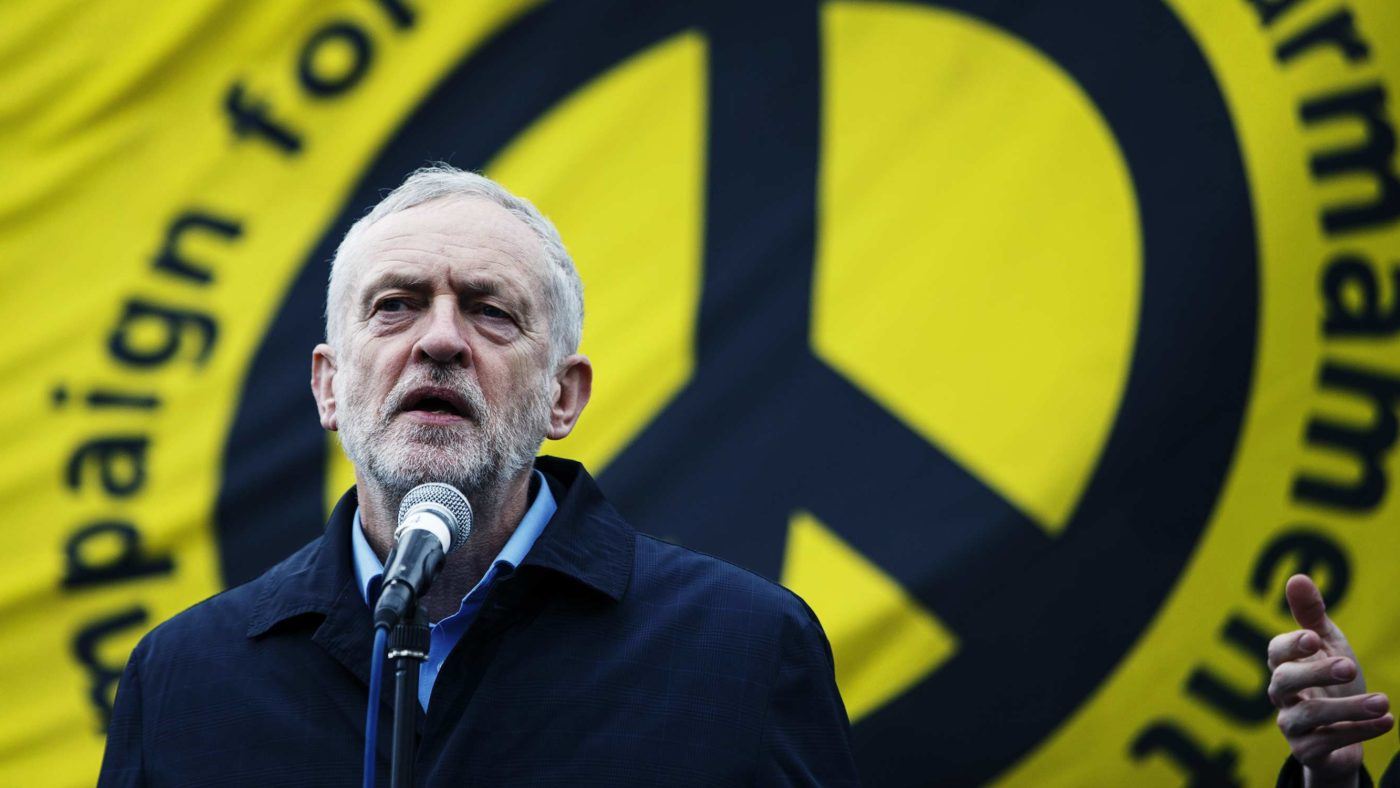Jeremy Corbyn’s speech on foreign policy yesterday at Chatham House was hailed in many quarters as pure, undiluted Corbyn. It might not be popular, they said, but this was certainly Jeremy being Jeremy.
Corbyn’s speech, it is true, placed him at the very fringes of respectable opinion. But this was still a sanded-down take on Corbynism, a diluted version judged suitable for mainstream consumption.
To find out what Corbyn really thinks, you don’t have to look far. Consider his foreword to a book from 2011 with the perfectly Corbynesque title of Imperialism: A Study.
What leaps out, as ever, is the way in which he judges the merits of every regime and movement by weighing up its antipathy to America – and to capitalism.
“Free market capitalism,” Corbyn writes sternly, “cannot provide for everyone, or sustain the natural world. Its very imperative is of ever hastening exploitation of all resources including people, and it needs armies and weapons to secure those supplies. The political appeal, unchallenged in the 1990s, of this concept is fast fading by a combination of Islamic opposition and the radical popular movements of landless and poor peoples in many poor countries.”
To write that paragraph, you have to have a very particular worldview. The kind which praises the Soviet Union for its “huge” influence on the world – which, alas, was “tempered by an inadequate industrial base in comparison to the United States and the ruinously expensive arms race that hastened its decline”. The kind which enthuses about the Cuban dictatorship, which has developed “enormous respect and stature among the poorest people, particularly in Latin America”.
It is this worldview that has, as we pointed out recently on CapX, led Corbyn into some very bad company – Hamas, Hezbollah, Vladimir Putin, the IRA.
It has also led him to take some quite extraordinary positions: denying the reality of events in Srebrenica and Kosovo; claiming al-Qaeda was founded by US trainers; opposing Nato action against Somali pirates on the grounds that it was Nato taking the action; publishing (as editor of a newsletter for hard-Left Labour MPs) articles denouncing the reunification of Germany because that reunification would be on a capitalist basis.
The Stop the War Coalition, which he long chaired, even passed a resolution shortly after he stepped down (since deleted from its website), condemning the “criminal” American embargo of poor little North Korea.
Perhaps the most telling example is Venezuela. In an article wiped from his website, but preserved on the Internet Archive, he waxes lyrical about the Chavez revolution.
“In a sense, history is being played out to its fullest extent in Venezuela,” says Corbyn. “In power, and faced with enormous opposition from a very hostile media, [Chavez] has allowed them to continue, preferring instead to develop an alternative form of communication and thus inspire support… Venezuela is seriously conquering poverty by emphatically rejecting the neo-liberal policies of the world’s financial institutions.”
Such excitement might be forgiven in the first flush of Bolivarian fervour. But events in Venezuela long ago turned sour – indeed, the country has been suffering from a slow-motion catastrophe.
Yet as recently as 2015, Corbyn was claiming that the achievements of Venezuela – “in jobs, in housing, in health, in education, but above all its role in the whole world as a completely different place” – were “a cause for celebration”. He’s less likely to criticise Nicolás Maduro than to interview him about why Tony Benn had it right.
This week has been dominated by domestic policy, in the form of Labour’s (statist, intrusive, hideously unfunded) manifesto. But remember: that manifesto was leaked. Foreign policy was meant to be Corbyn’s big thing this week. He wanted us to talk about it.
So let’s talk about it. Let’s talk about his conviction – admirable in its consistency, baffling in its pig-headedness – that we are wrong to be in any way proud of our system. That the free market is not an engine of prosperity, but a fraud perpetrated on the world.
As Corbyn writes in Imperialism, the fact that we believe ourselves to be in any way blessed is the result of the way that “all countries encourage a very nationalist form of history teaching, [from which] stems racism and perverted feelings of superiority”.
Foreign policy is what gets to the heart of Jeremy Corbyn. It’s the topic that he’s most passionate about, that got him into politics in the first place. His mission is to build that “completely different place” – whether in Britain or elsewhere.
Given the calamity that has ensued every time his ideas have been tried, the rest of us should make it ours to stop him.
This article was taken from CapX’s Weekly Briefing email, which also features our best stories of the week. Sign up here.
EDIT: This article originally stated that ‘Imperialism’ was published in 2006. The relevant edition is actually from 2011.


